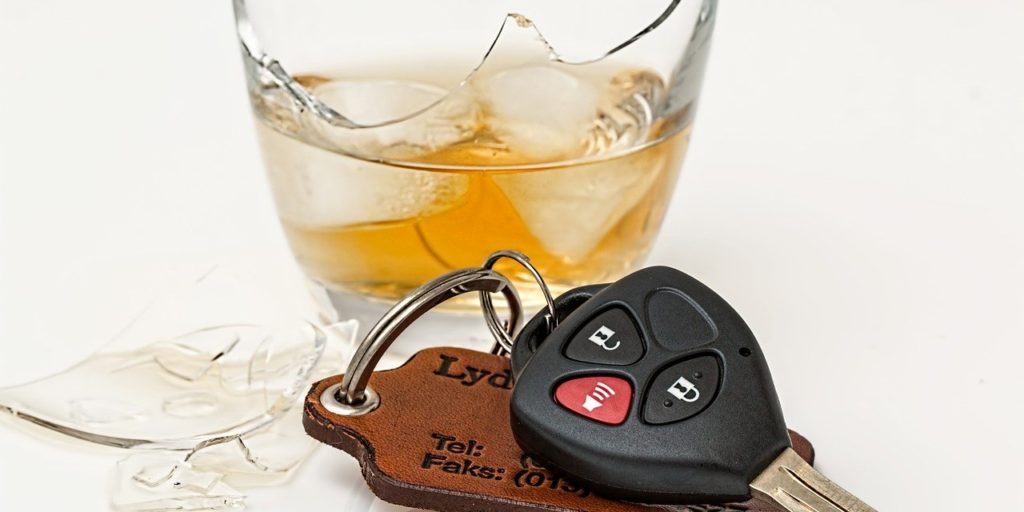- Lifetime licence bans are needed to fight drinking and driving - January 6, 2021
- Tinted windows in automobiles: are they permitted in Ontario? - August 7, 2020
- Recent cycling deaths point to a need to make roads safer - July 27, 2020
By Tony Poland, LegalMatters Staff • It is time to dispel the notion that driving an automobile is a right and consider lifetime bans for impaired drivers, says Ontario trial lawyer and safety advocate Patrick Brown.
Brown, principal partner with McLeish Orlando LLP, says lifetime licence revocation for repeat drunk drivers should be the norm not the exception. Instead of waiting a specific set number of years, the licence should be revoked indefinitely, with the offender having to apply to get it back.
“It gets back to that whole concept that we see driving a car as a right as opposed to a privilege,” he tells LegalMattersCanada.ca. “If we see it as a privilege, then is no reason we cannot have a life ban, with the onus on the offender to prove they are responsible to get it back.
Unfortunately, however, there are individuals who disregarding driving prohibitions and simply continue to get behind the wheel.
History of impaired driving
He referenced a recent case where a 27-year-old woman with a history of impaired driving had her parole revoked after she was caught drinking and driving in June.
Global News reports that the woman pleaded guilty to impaired driving causing death in a collision that killed a Toronto cyclist in June 2015. At the time, she was allegedly driving 110km/h on a street where the speed limit was 60 km/h.
Global reported that about a month before the cyclist’s death she had pleaded guilty to a 2013 drinking and driving offence. She was fined $1,200 and prohibited from driving for a year.
The woman was sentenced to a seven-year prison term in the cyclist’s death but received credit for pre-trial custody and the sentence was reduced to 4½ years. Her licence was also suspended for 10 years.
Full parole
She was granted full parole in October 2018. This summer she was pulled over on Hwy. 400 and charged after she allegedly tested over two times the legal limit for alcohol, according to the news report.
The Parole Board of Canada reviewed her case, and her full parole was revoked.
“Despite having completed programming, demonstrating a period of sobriety in the community, and showing positive process, you chose to drink and get behind the wheel of a car,” the Parole Board of Canada wrote in its decision dated Dec. 3, according to Global. “Clearly, you had resumed your offence cycle.”
- Recent cycling deaths point to a need to make roads safer
- Reckless play in a ‘beer league’ game can come with a cost
It was reported that the woman’s driving record includes three speeding tickets for driving well above the legal limit in 2012. She was also found guilty of disobeying a red light in 2013.
Brown says short-term driving bans are ineffective with some offenders. Even 10-year prohibitions are not always a deterrent.
“I am not in favour of tossing all drunk drivers in jail and throwing away the key,” he says. “However, if the consequences of your actions while drinking and driving result in someone being harmed or killed then we should have penalties that reflect those consequences. Right now, we don’t.”
Proof required
Brown says if someone loses a leg in a car accident, their driver’s licence would be revoked until they could prove they were fit to operate a motor vehicle.
“I see no reason why you can’t give an automatic lifetime suspension to an impaired driver so that they would have to appear before somebody and prove they are responsible enough to get their licence back,” he says.
Brown says with 1.35 million deaths worldwide each year in traffic accidents, finding ways to curb drunk driving is essential.
“Impaired drivers are putting people in harm’s way based on their actions,” he says. Certainly, through the efforts of organizations such as Mothers Against Drunk Driving, we have been able to accelerate some of the mandatory minimum sentences but they have had to fight for every one of those changes.”

